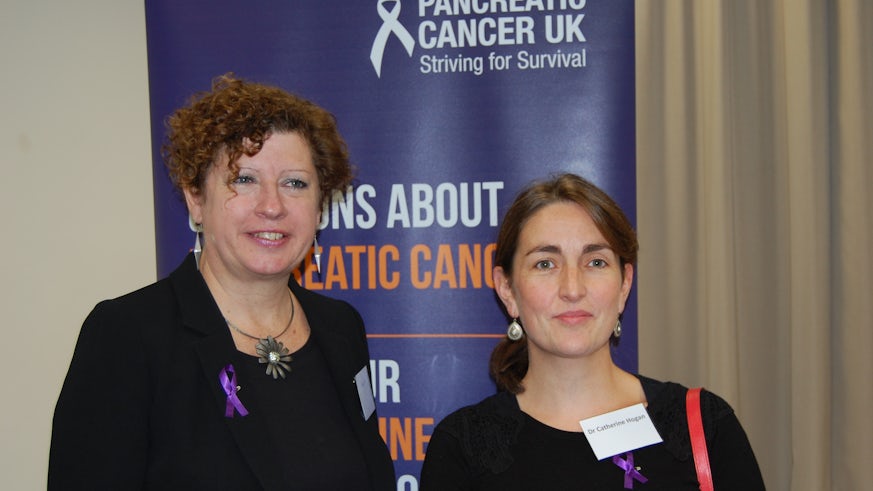Lobbying for Increase in Pancreatic Cancer Researcher Community
3 December 2014

Dr Catherine Hogan, Research Fellow at the European Cancer Stem Cell Research Institute, was among the invited guests at a reception held at the Welsh Assembly hosted by Pancreatic Cancer UK, who have toured all four countries in the UK to garner support for an increase in research and funding into the disease.
The event took place shortly following the release of Pancreatic Cancer UK's report Pancreatic Cancer Research: a Roadmap to Change from The All-Party Parliamentary Group (APPG) on Pancreatic Cancer, which calls for a new approach to attracting inspiring scientists into this field.
Eric Ollerenshaw OBE MP for Lancashire and Fleetwood who chaired the Inquiry said:- "The APPG is in no doubt that the kind of change needed to make any impact on the current appalling survival statistics for pancreatic cancer will only be achieved through research: research that will aid early diagnosis and screening; research that will result in more and better treatments; and research that will hopefully offer opportunity for a cure.
"At the moment, we are not seeing enough research into pancreatic cancer. The low level of pancreatic cancer research funding is due in part to a relatively small pancreatic cancer research community, which therefore produces a small number of research applications.
"However, one of the key reasons the pancreatic cancer research community remains small is because of the low level of investment into research. This is a vicious circle we must strive to break."
At the event at the Welsh Assembly, Chief Executive of Pancreatic Cancer UK, Alex Ford, specifically referred to Dr Hogan's research at the Institute, holding it up as an example to follow. The event brought together researchers, clinicians, patients and fundraisers.
Dr Hogan said:- "I fully support the findings of the inquiry and subsequent report – pancreatic cancer currently receives only 1% of all cancer research funding, but is still the most misunderstood of all of the cancer types. Meeting others within the pancreatic field at this event has made us even more determined here within the Institute to improve our understanding of the disease."